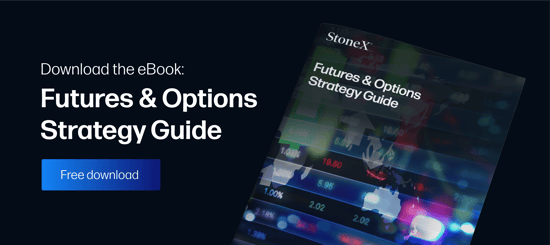When it comes to trading wheat futures, it is paramount to know the types of wheat is out there and where to trade each variation. As the summer begins to arrive along the southwestern plains, news continues to come out about the drought and hot temperatures there creating a poor quality crop. The speculator in us all tells us to buy wheat as the supply coming online will be small and poor in quality. We want to own what is scarce!
If this were corn or soybeans our strategy would be simple. We would call our broker and put in an order to buy Corn or Soybeans traded at the Chicago Board of Trade, the only domestic Corn or Bean futures contracts available. When it comes to wheat futures, things aren’t as clear cut. Wheat grown in the Western Plains is not the same wheat grown east of the Mississippi, and the prices will reflect that. Each has different protein levels and is used in producing different end goods. The supply and demand picture can be different as well. So to potentially turn our inclinations into profits we need to make sure the instrument we are using is the correct and intended one.
There are three main types of tradable wheat with active, liquid futures contracts. In this business each type is referred to by the city in which it is traded: Chicago Wheat (Soft Red Winter Wheat), Kansas City Wheat (Hard Red Winter Wheat), and Minneapolis Wheat (Hard Red Spring Wheat). The classifications of “spring” and “winter” refer to the time of the year each are planted.
Kansas City Hard Winter Wheat
The most prevalent type of Wheat grown in the United States is the Hard Red Winter Wheat traded in Kansas City. This Wheat is grown in Kansas, Texas, Oklahoma, and Nebraska. The KC Wheat is used primarily in bread making and is widely used around the world. KC Wheat represents half of the total domestic wheat production here in the US. This type of wheat has a mid to high level of protein in it and can be used as a substitute for livestock feed if necessary. It is in tight supply right now due to difficult growing conditions in the areas mentioned above. The pit traded symbol for this type of wheat is KC, the Globex symbol is KE.
Chicago Soft Winter Wheat
Soft Red Winter wheat or Chicago Wheat is the most actively traded wheat contract and is traded at the Chicago Board of Trade. When most people speak of wheat futures they are referring to this contract. Chicago Wheat is mostly grown east of the Mississippi river in more humid environments. Chicago Wheat is produced for its ability to be processed into flour. It has light protein content and isn’t as good of a substitute for animal feed as other wheat and isn’t used in much bread either. We typically find this type of wheat in our cakes and sweet flour based snacks. The Pit symbol for CBOT wheat is W, and the Globex symbol is ZW.
Minneapolis Hard Spring Wheat
The third and least traded type of wheat futures contract is the Hard Red Spring wheat traded on the Minneapolis Grain Exchange. Minneapolis Wheat is grown in the Dakotas, Montana, Wyoming, and Idaho. It is typically the heartiest wheat available. Due to its high protein content it is used in bread making and is a competent substitute for animal feed. This crop is typically the last wheat crop to go into the ground due to its northern locale. It is also the least traded of the three wheat contracts and in times of tight supply has seen the most volatile of price movements. The pit symbol for “Minny” Wheat is MW, the electronically traded symbol is MWE.
There is a Difference
So now that we are aware of the different wheat contracts it is important to differentiate between them when constructing trade ideas. If one is looking to just get long wheat, it might be a good idea to take a look at each crop individually to see which is more susceptible to market movements. Spreading (ex. Buying KC Wheat /Selling Chicago Wheat) is an effective way to isolate a certain crop and protect against outside market volatility. The KC/Chicago example has been effective of late, the drought in the KC Wheat crop (Dec) has added close to an 80cent premium ($4,000 per contract) over the Chicago wheat (Dec) in recent months. So, if a trader saw that the weather in the panhandle of Texas was getting worse and wanted to buy wheat to profit from crop destruction it would behoove them to look and see what type of wheat is grown in that area and where it is traded. If they saw that the KC Wheat was grown there and placed a buy order on KC Wheat rather than the Chicago wheat the profits would have been greater. It pays to know!
Whatever the strategy, it’s vital to know not all wheat is the same and needs to be differentiated when being traded. If you have any questions on wheat and how you can potentially profit from it contact your broker for assistance and trade ideas.
